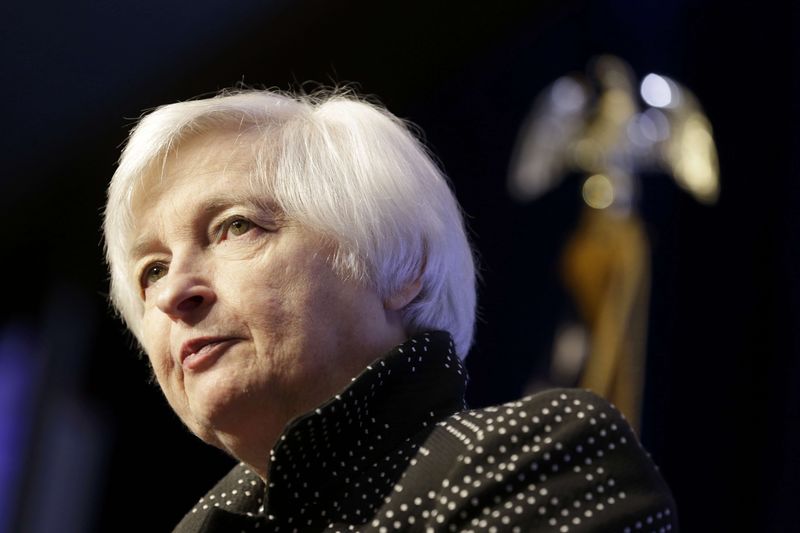By Jason Lange and Howard Schneider
WASHINGTON (Reuters) - Federal Reserve Chair Janet Yellen said on Wednesday she was "looking forward" to a U.S. interest rate hike that will be seen as a testament to the economy's recovery from recession.
In prepared remarks to the Economic Club of Washington, Yellen did not indicate if she still expected a rate hike would be warranted at the Fed's last remaining policy meeting this year on Dec. 15-16.
She expressed confidence in the U.S. economy, saying job growth through October suggested the labor market was still healing although not yet at full strength. She also reaffirmed her view that the drag from abroad on U.S. economic growth and inflation would start to moderate next year.
Already, she saw risks from abroad as having dissipated since the summer, and noted consumer spending was "particularly solid" and that its outlook remained positive.
"When the Committee begins to normalize the stance of policy, doing so will be a testament ... to how far our economy has come," she said, referring to the Fed's policy-setting committee. "In that sense, it is a day that I expect we all are looking forward to."
Investors were already betting the Fed would lift its benchmark rate this month from the 0 to 0.25 percent range where it has held since 2008. Economists also see a high chance of a December lift-off.
Following the release of Yellen's remarks, the dollar initially strengthened in the currency markets, indicating more confidence that higher interest rates were around the corner.
"Yellen gave a fairly positive assessment of the economy that would be consistent with the Fed raising rates at their December meeting," said Vassili Serebriakov, currency strategist at BNP Paribas (PA:BNPP) in New York.
As in previous speeches and public appearances, Yellen said the timing of the first U.S. rate increase in nearly a decade was not as important as the path of subsequent hikes, which she said should be gradual.

"An abrupt tightening would risk disrupting financial markets and perhaps even inadvertently push the economy into recession," she said.